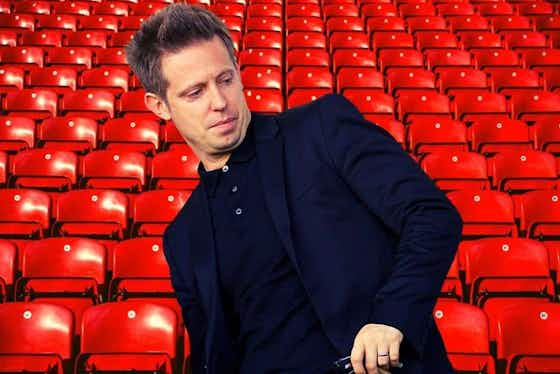Anfield Index
·22 May 2024
Liverpool Set for Major Structural Change Following Jurgen Klopp’s Exit

In partnership with
Yahoo sportsAnfield Index
·22 May 2024

As reported by The Athletic, Liverpool’s structure under the new guidance of Michael Edwards presents an intriguing evolution for the club. With the departure of Jurgen Klopp and his backroom staff, there’s a notable shift not just in personnel but in the very architecture of how Liverpool will operate going forward. Klopp’s exit, attributed to a “lack of energy” after 26 years in football, marks the end of an era and the beginning of a new chapter under Edwards’ leadership.
Michael Edwards, previously Liverpool’s sporting director, has ascended to a broader role as FSG’s Head of Football Operations. This position extends his influence, potentially overseeing another club alongside Liverpool, should FSG expand their portfolio. The Athletic notes that Edwards is “assuming the day-to-day responsibilities of FSG president Mike Gordon,” which underscores the depth of his new duties. This transition seems to signify a shift from the more traditional, manager-centric model to a structure that emphasizes strategic oversight across multiple clubs.

X: @FabrizioRomano
Richard Hughes is set to start as the new sporting director on June 1, with Edwards as his superior. This duo, alongside the recruitment team, will dictate the transfer policy—a key area of focus especially in the post-Klopp era. Notably, Arne Slot steps in as ‘head coach’, a role distinctively different from that of a traditional manager like Klopp, who wielded considerable influence over transfers. Slot’s reduced role in transfer dealings reflects a strategic pivot towards a more centralized management structure for player acquisitions.
Pedro Marques and Julian Ward’s roles are also highlighted as they gear up to potentially manage a second football club under the FSG umbrella, with Brazilian club Sao Paulo mentioned as a possible addition. This broadening of the management scope suggests FSG’s ambition to replicate their success across different football cultures and markets.
The Athletic‘s portrayal of Liverpool’s restructuring raises questions about how these changes will impact the club’s strategy in the transfer market and overall team dynamics. As Liverpool navigates this transition, the effectiveness of their new structural paradigm will be closely watched. Will the streamlined decision-making process enhance Liverpool’s ability to adapt and thrive in the competitive landscape of European football?
As Edwards and his team shape the future, Liverpool’s fans will be keen to see how the new strategies and roles evolve. The challenge lies in balancing the club’s storied traditions with innovative approaches to football management and team building.
In conclusion, The Athletic’s insights into Liverpool’s ongoing transformation reveal a club at a pivotal juncture. The post-Klopp era under Michael Edwards promises a blend of continuity and change, with strategic innovations that could redefine Liverpool’s trajectory in the coming years.






























































